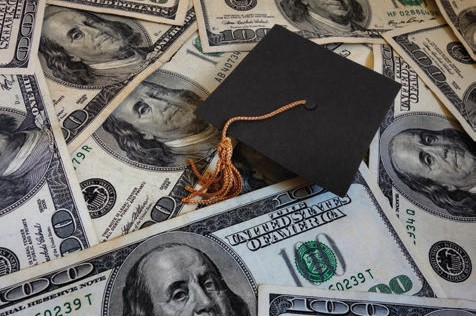As college students head to campus for the fall semester, money management should be on their personal syllabus, according to the American Bankers Association. The organization has released ten money-saving tips to help college students get an early start on securing their financial future.
“It’s important for college students to take control of their financial future by saving wherever and whenever they can,” said Frank Keating, ABA president and CEO. “They should treat personal finance like a second major and avoid unnecessary expenses now to reduce financial burden when they graduate.”
ABA offers the following tips to help college students form a strong foundation for money management (other consumer financial tips are available at aba.com/Consumers):
Create a budget. You’re an adult now and are responsible for managing your own finances. The first step is to create a realistic budget or plan and stick to it.
Watch spending. Keep receipts and track spending in a notebook. Pace spending and increase saving by cutting unnecessary expenses like eating out or shopping so that your money can last throughout the semester.
Use credit wisely. Understand the responsibilities and benefits of credit. Use it, but don’t abuse it. How you handle your credit in college could affect you well after graduation. Shop around for a card that best suits your needs.
Take advantage of your bank’s resources. Most banks offer online, mobile and text banking tools to manage your account night and day. Use these tools to check balances, pay bills, deposit checks and monitor transaction history.
Lookout for money. There’s a lot of money available for students — you just have to look for it. Apply for scholarships, and look for student discounts or other deals.
Buy used. Consider buying used books or ordering them online. Buying books can become expensive and often used books are in just as good of shape as new ones.
Entertain on a budget. Limit your “hanging out” fund. There are lots of fun activities to keep you busy in college and many are free for students. Get the most from your student ID. Use your meal plan or sample new recipes instead of eating out.
Use only your bank’s ATMs. Avoid fees by using ATMs owned by or affiliated with your bank. If you must use an ATM that is not affiliated with your bank, take out larger withdrawals to avoid having to go back multiple times.
Expect the unexpected. Things happen, and it’s important that you are financially prepared when your car or computer breaks down or you have to buy an unexpected bus ticket home. You should start putting some money away immediately, no matter how small the amount.
Ask. This is a learning experience, so if you need help, ask. Your parents or your bank are a good place to start, and remember—the sooner the better.
The American Bankers Association is the voice of the nation’s $17.9 trillion banking industry, which is composed of small, regional and large banks that together employ more than 2 million people, safeguard nearly $14 trillion in deposits and extend more than $10 trillion in loans. For more information, visit aba.com

